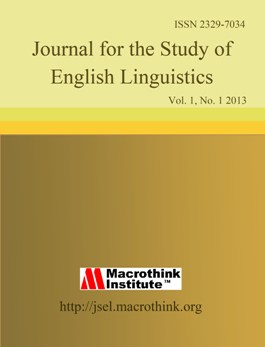The Role of Working Memory Capacity in L2 Vocabulary Learning Among Saudi EFL Students
DOI:
https://doi.org/10.5296/jsel.v12i1.22242Keywords:
Second language vocabulary, working memory capacity, EFL, operation span taskAbstract
Acquiring a second language (L2) involves complex cognitive processes, where working memory (WM) plays a crucial role. This study investigates the relationship between WM capacity and L2 vocabulary acquisition among 100 Saudi EFL learners, focusing on first-year university students. Utilizing the Automated Operation Span Task (AOSPAN) to measure WM capacity and a custom-designed vocabulary test, the study found significant correlations between WM capacity and vocabulary retention, immediate recall, and usage in context. The experimental group, which received WM training, outperformed the control group across all measures. These findings underscore the importance of WM in L2 vocabulary learning and suggest that WM training can enhance vocabulary acquisition. The study's implications for educational practices are discussed, highlighting the potential for integrating WM training into language curricula to support learners' vocabulary development. This research contributes to understanding cognitive factors in L2 learning and provides practical recommendations for educators to enhance vocabulary teaching strategies for learners with varying WM capacities.




